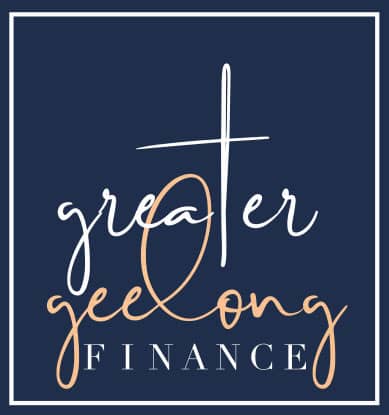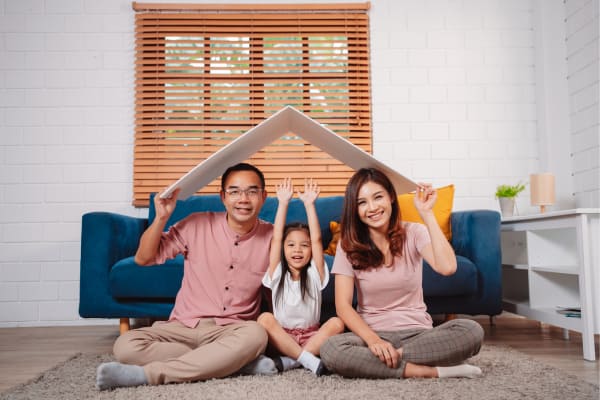Buying your first home is a big deal. It’s exciting, but it can also feel overwhelming. If you’re looking to buy your first home in Greater Geelong, you’re not alone—many people are drawn to the area for its relaxed vibe, coastal living, and the fact that property prices here are still more affordable than in Melbourne.
Whether you’re eyeing a place in Newtown, Highton, or closer to the waterfront in Ocean Grove, there’s a lot to think about when it comes to securing your first home. To help you through it all, we’ve put together a simple first home buyer checklist that covers everything from saving for a deposit to moving in.
1. Get a Clear Picture of Your Finances
Before you start looking for homes, you need to know where you stand financially. Take the time to look at your income, savings, and any debts you might have. You’ll also want to check your credit score, as this can affect the home loan options available to you.
Here are a few questions to ask yourself:
- How much do I earn each month, and what are my regular expenses?
- Do I have any outstanding loans or credit card debt?
- Am I sticking to a budget, and how much can I realistically save for a deposit?
This is where a mortgage broker can really help develop a taliored plan for you. They’ll assess your financial situation and give you a realistic idea of how much you can afford to borrow, based on your income and expenses. It’s also a good time to talk to them about how much deposit you’ll need, what kind of home loan options are out there, and what you can expect from lenders.
2. Save for a Deposit
One of the biggest hurdles for first home buyers is saving for a deposit. Most lenders will want you to have a deposit of at least 5% to 20% of the property’s purchase price. The more you can save, the better your home loan terms are likely to be.
Here are a few tips to help boost your deposit savings:
- Set up a separate savings account just for your deposit, so you’re not tempted to dip into it for other things.
- Cut back on non-essential spending. Cancel any subscriptions you don’t use, avoid eating out too often, and look for ways to save on your day-to-day expenses.
- Check if you’re eligible for any government schemes or grants, like the First Home Owner Grant (FHOG), which can give you a lump sum towards buying a new home. Or perhaps the First Home Guarantee (FHBG) which can get you into your first home with a deposit as little as 5%. If you’re buying in Greater Geelong, you might also qualify for the Stamp Duty Concession, which can help lower your upfront costs.
A mortgage broker can also help you work out how much you need to save and guide you towards any government grants or concessions you may be eligible for.
3. Get Pre-Approval for a Home Loan
Once you have a deposit saved and you’re feeling confident about your finances, it’s time to apply for pre-approval from a lender. Pre-approval is a written agreement from the lender that they’re willing to lend you a certain amount of money based on your financial situation. While it’s not the final approval, it’s an essential step that helps you understand your borrowing capacity.
Having pre-approval in hand also makes you a more attractive buyer when you start house hunting. Sellers and agents know you’re serious about buying and that you have the financial backing to make it happen.
A mortgage broker can help you secure pre-approval by comparing loans from different lenders, explaining your options, and finding the best home loan for your situation. They can also help you understand the pros and cons of fixed vs. variable rates and what type of loan features might suit you best.
4. Start Looking for Your Home
Now the fun part begins—looking for your first home! Greater Geelong offers a variety of suburbs, each with its own vibe and amenities. Whether you’re interested in Lara for its proximity to Melbourne or Geelong West for its café culture, there’s something for everyone.
Here are some tips to help you during your property search:
- Know your budget and stick to it. Don’t get caught up in the excitement and fall in love with properties that are outside of what you can afford.
- Attend open homes and get a feel for the places you’re interested in. You might visit a property and realise it’s not as perfect as it seemed in the photos.
- Think long-term. Is this a place you’ll want to stay in for several years, or are you planning to upgrade sooner rather than later? Consider how the property fits into your lifestyle and future plans.
A mortgage broker can be a valuable resource here, too. They’ll help you understand your budget, guide you on what type of home loan you’re working with, and answer any questions you have about buying in the current market.
5. Make an Offer and Sign the Contract
Once you’ve found a property that you like, it’s time to make an offer. If it’s a private sale, you can negotiate directly with the vendors real estate agent. If it’s going to auction, you may have to put in a bid. Either way, make sure you’re confident in your decision and don’t rush into anything.
Once your offer is accepted, you’ll move to the next step: signing the contract of sale. It’s a good idea to have a conveyancer or solicitor look over the contract before you sign, just to make sure everything is in order.
A mortgage broker will also play a key role here—once your offer is accepted, they’ll help finalise your loan approval, ensuring everything’s in place for the settlement date and co-ordinate your purchase with key stakeholders.
6. Get Ready for Settlement Day
Settlement is the day when the property officially becomes yours. Before you get to this stage, here’s what you’ll need to do:
- Organise building and contents insurance to cover your new home.
- Double-check that your deposit has been paid and that your home loan is ready to go.
- Do a final inspection of the property to make sure everything is in the condition you expect.
On settlement day, your solicitor or conveyancer will transfer the funds to the seller, and you’ll get the keys to your new home. Congratulations! You’ve officially bought your first home.
7. Moving In and Settling In
Once the hard work is done, it’s time to enjoy your new home. Set up your utilities, unpack your things, and make the space your own. If you’re new to Geelong, now’s the time to get to know the area—check out local cafés, parks, and shops. You’ll soon feel right at home.
How a Mortgage Broker Can Help You
Buying your first home can be a bit complicated, but working with a mortgage broker can make things much easier. They’ll help you understand your loan options, guide you through the entire process, and make sure you’re getting the best home loan for your circumstances. From assessing your finances to securing pre-approval and finalising your home loan, a mortgage broker will be there every step of the way.
Final Thoughts
Buying your first home in Greater Geelong doesn’t need to be overwhelming. By following this checklist and getting the right support from a mortgage broker, you’ll be well on your way to finding a property that suits your needs and budget. Whether you’re looking for a cosy apartment, a family home, or an investment property, the process is a lot smoother when you’re organised and well-informed.
If you’re ready to take the first step, talk to a mortgage broker today. They’ll help you find the best loan for your situation and make the home buying process much easier.

